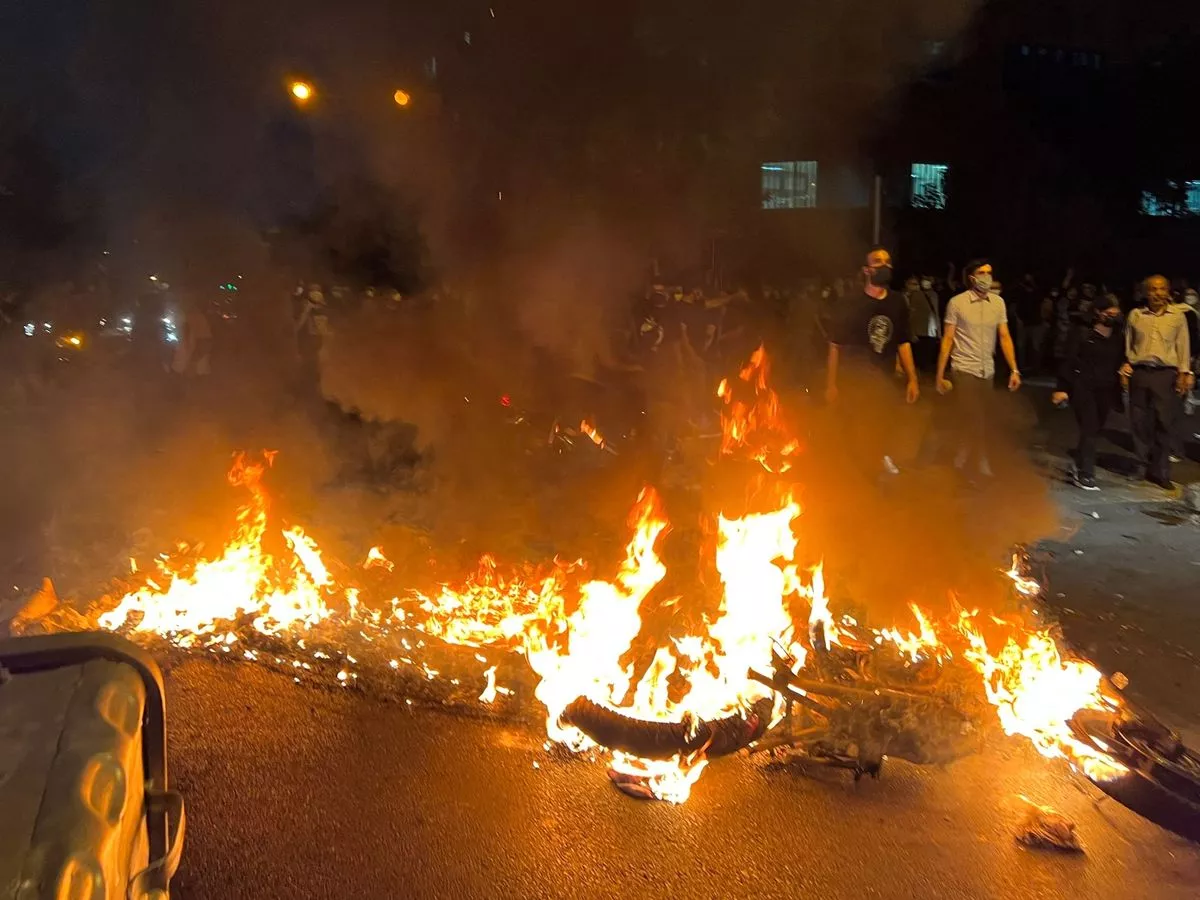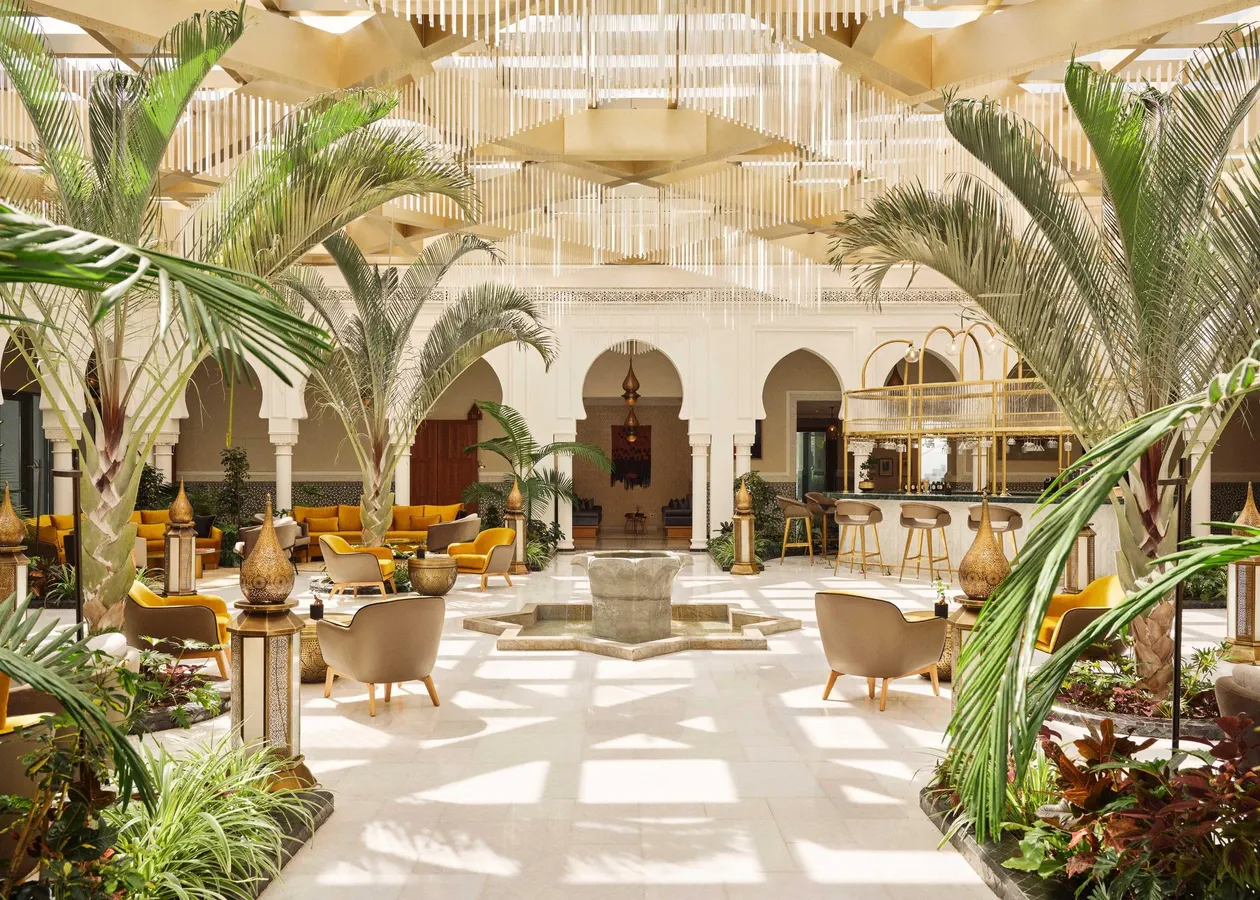Copyright mirror

Britain and the West must step away from Iran to allow a popular and democratic uprising to oust the Mullah regime that has ruled with an iron fist since 1979, experts have warned. Senior Iranian dissidents believe a rising rebel movement of 20,000 covert cells will topple the Islamic Republic of Iran and its shadowy unit of enforcers the Revolutionary Guard Corps... and they believe a revolution could happen within months. With sometimes more than 10 rebels in each secretive cell, it means the counter-regime movement is growing by the week and is taking to the streets in defiance. It is estimated that there could be as many as between 100,000 and possibly even more members of the rebel units and they could even arm themselves if needed. Each cell is separate, sworn to secrecy, and does not know the identity of the others. Some believe the total number of dissident individuals who have joined the MEK - the People's Muhajideen Organisation of Iran - could have swelled in the past year. If they are caught many are executed publicly, their bodies shovelled into unmarked graves - but increasingly they are taking to the streets to protest against the Ayotollah regime. And they could easily become armed as it is claimed weapons have been smuggled into Iran already. Iranian-born Dr Majid Sadeghpour, who lives in exile in the States and is political director of the Washington-based Organisation of Iranian American Communities, said: “As the regime faces near-total political and military collapse, it’s ramping up pressure on the Iranian people — from a sharp rise in executions - about 150 executions per month- and arrests to siphoning cash from the poor and middle class. “Ill-prepared for another uprising, Tehran is pouring resources into repression and terror.” In 1979 the Iranian Revolution toppled the Shah’s regime, which had been marred by repression, political intrigue and economic issues. The Ayatollah Ruhollah Khomeini emerged from exile and a referendum in April 1979 made him supreme leader of a theocratic government until his death ten years later. Feared Ayatollah Ali Khamenei, the current Supreme Leader of Iran, now holds ultimate authority over state policy, the military, and the judiciary. He came to power in 1989, succeeding Ayatollah Khomeini. In its early days the newly-announced Islamic Republic of Iran declared void the Family Protection Act of 1967 which provided rights to women in marriage. Committees called Komitehs - in Persian - patrolled the streets enforcing Islamic codes of dress and behaviour. The violence and brutality often exceeded that which had taken place under the Shah and has worsened with executions and torture ever since. Dr Sadeghpour , whose own brother was executed by the regime, says of the modern day rebel MEK groups, who for their own security do not know the identity of the other cell: “These people held a protest up in Iran for six months, facing bullets, beheadings, rape and execution. And people say this thing has no organisation and no head and no direction. Is that even possible? This movement is focused. It is organised. And it is coordinated. And the murder that you see inside Iran occurring at the moment, the number of executions are the regime’s only response left. “There's no other country on the face of the planet that is killing as many of his citizens as Iran is. It accounts for three fourths of all global executions or perhaps even north of three fourths.. It has already executed more than one and a half times what it did last year. It's already killed 57 women this year. Now, that said the global policy on Iran as of right now is to try and persuade it to change its behaviour. That is despite its support for terrorism, despite its nuclear weapons program, despite its support for war in Ukraine . Despite its support for conflicts in the Middle East, despite its nuclear weapons program, and despite it leading the world in global executions and torture and murder and wreaking havoc across the globe. “Despite all of that, the global policy led by the United States on Iran is to convince Iran yet again, to change its behavior. And that includes Britain. And that is the state of the world. Even though the policy of the Iranian people has since 1982 been to overthrow this regime.” And he added that an uprising could be armed. Asked how an uprising can take place without being able to stand up to the IGRC he replied: "The weapons are…, I tell you this... the weapons are already inside Iran.” Dr Sadeghpour does not believe negotiating with or pacifying the Iranian regime will work since the revolution cannot change its policies and brutal culture. He added: “This regime is not going to fall by bombs from the sky. Not because of its DNA, which is inherently violent, misogynist, predatory, medieval DNA. It is incapable of change. hat is why it can't agree to a reasonable agreement with the international community on something as easy as Gaza. “So it continues to incite further conflict. I remember, I remember when I was a young man in Iran, in my not even early teens, it was the Iran Iraq War, and my classmates were being recruited to the Iran, Iraq War, and they didn't care if these kids had to walk their minefield to clear the field for the Islamic Revolutionary Guard Corps.. As long as everything burned, they were fine. “Iran is run by a fascist, medieval dictatorship. You live in Europe, and you know your own history there. But even at its height, medieval Europe, or even the subsequent medieval Ottoman Empire. Neither one of them was as bad as this. They decayed over time, and that is what's happening to this regime.” Others disagree that the rebel groups are popular among society, even though Dr Sadeghpour maintains that the secretive units must have grassroot support to even survive. Hamid Dabashi, professor of Iranian Studies at Columbia University said recently that there is nobody available to take power if the regime goes. He reportedly claimed in Responsible Statecraft, the online service of the US think tank the Quincy Institute: “The monarchists and the Mojahedin are positively despised by the overwhelming majority of the Iranian population with no grassroots support. “Despite a significant opposition to the ruling regime, it is still widely and passionately popular among many others.”



